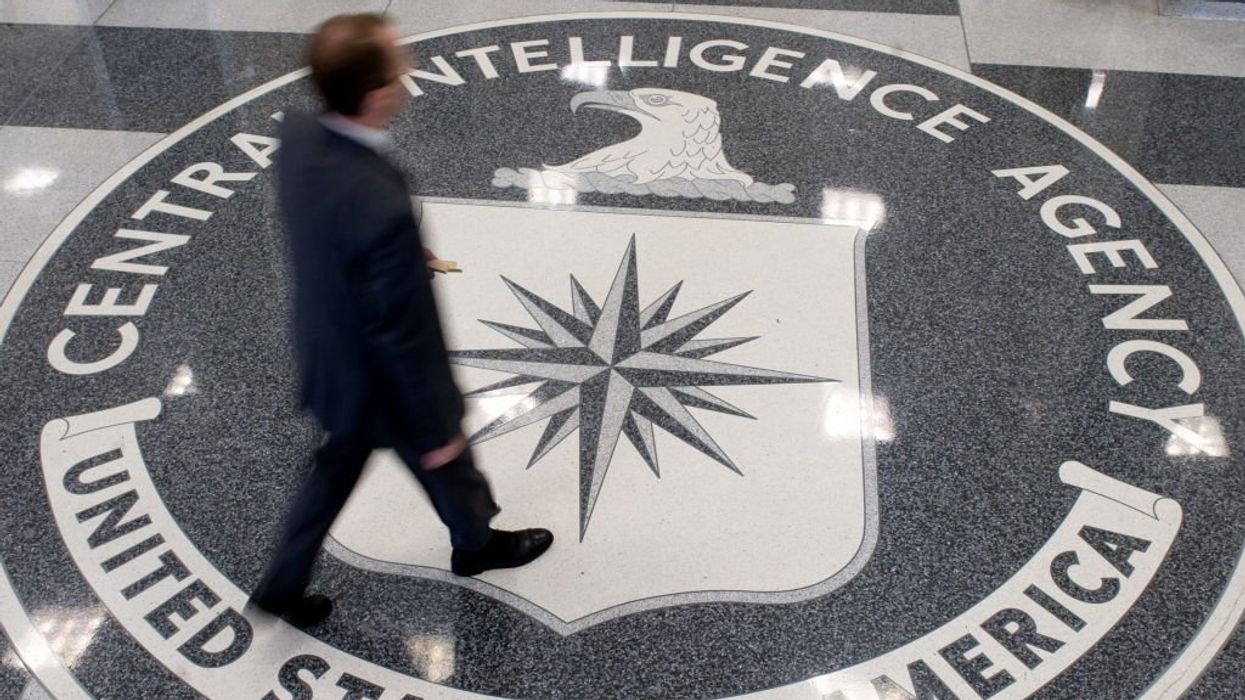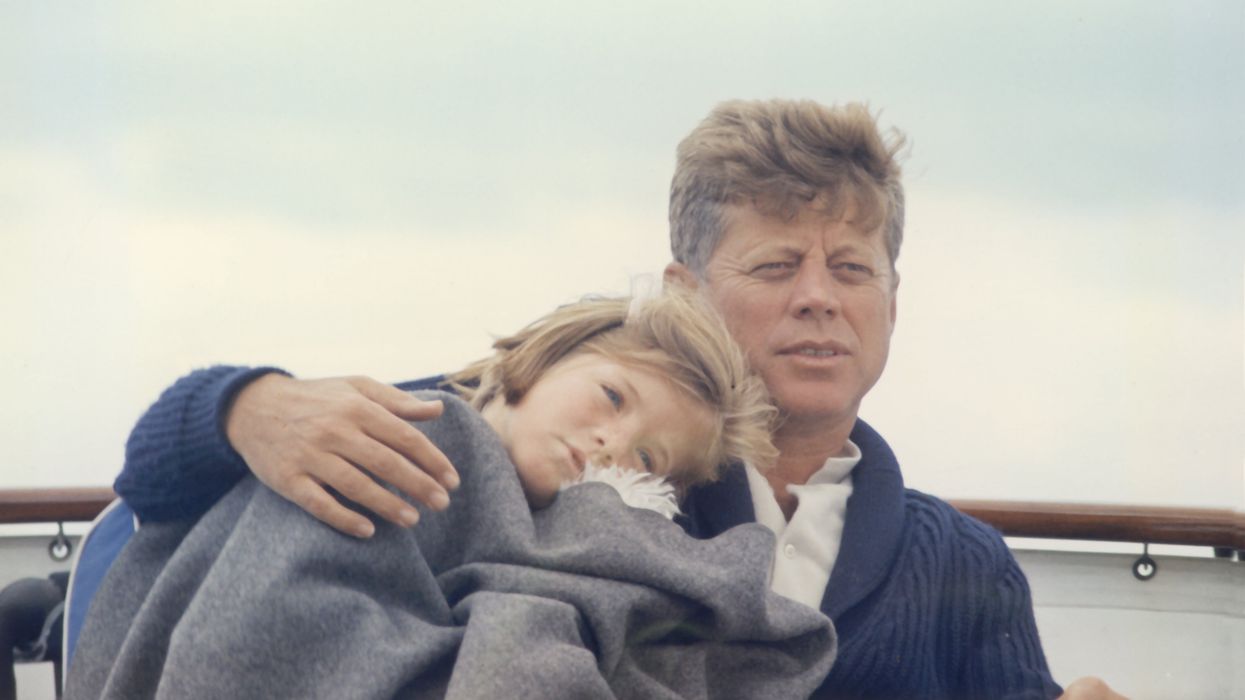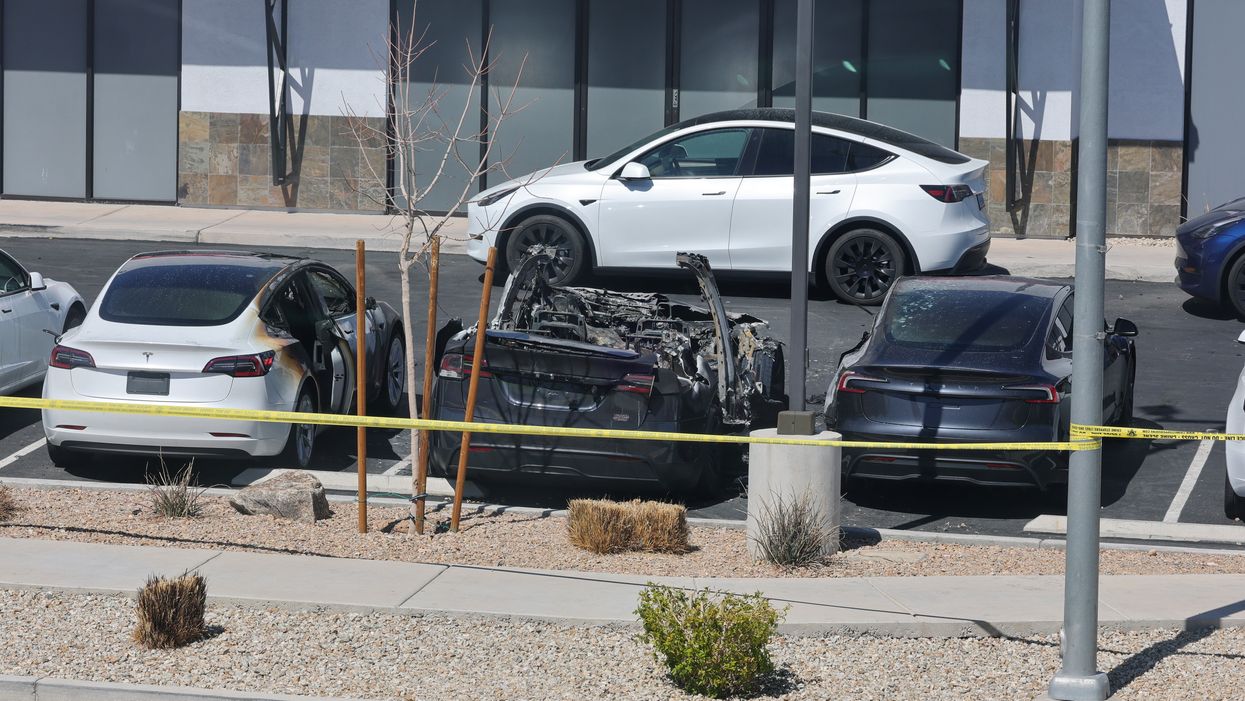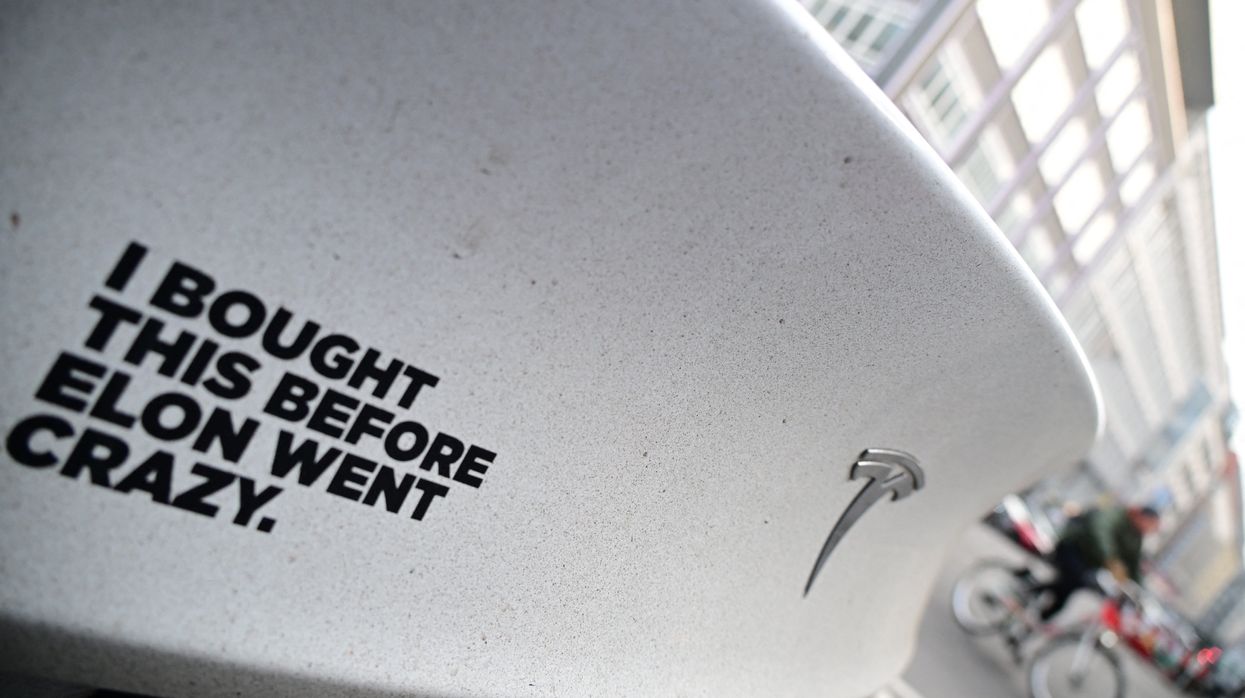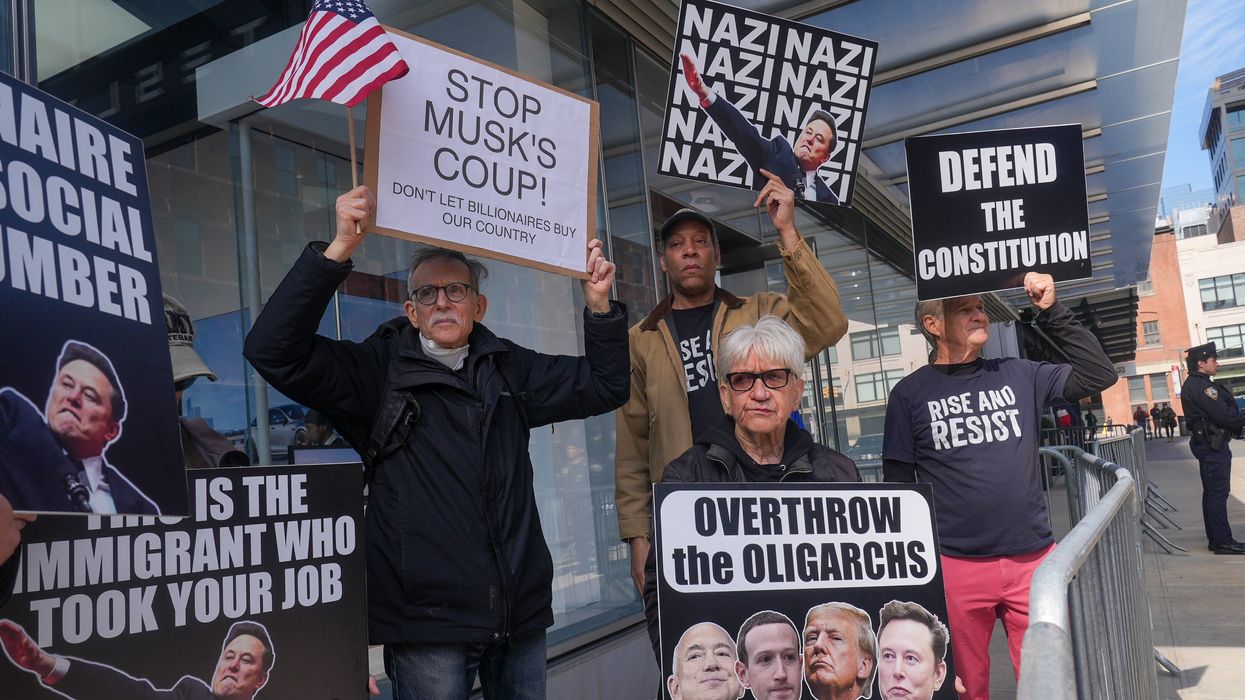The transition from using food stamps to cards that look like debit or credit cards has lessened the stigma of using government assistance. However, it's completely contrary to what Benjamin Franklin said about ending poverty:
I think the best way of doing good to the poor, is not making them easy in poverty, but leading or driving them out of it. I observed...that the more public provisions were made for the poor, the less they provided for themselves, and of course became poorer. And, on the contrary, the less was done for them, the more they did for themselves, and became richer.
RELATED: War on Poverty--Abusing the System
"I don't and won't look down on somebody who is using a Lone Star card or welfare stamps . . . I won't do that. My father made that very clear to me when I was a kid: You don't look down at those people. You don't know their situation. But I do want them, when they pull it out, to go, I wish I didn't have to do this."
Read below or watch the clip for answers to these uncomfortable questions:
• What advice did Glenn's father give after his bakery went bankrupt?
• Why is feeling uncomfortable a good thing?
• Does the YMCA offer free cable?
• Did Vanderbilt do a disservice to his children by giving them money?
• Why hasn't $22 trillion ended the War on Poverty?
Below is a rush transcript of this segment, it might contain errors:
GLENN: I have to tell you, this bothers me so deeply, the -- what's the Texas card called?
PAT: Lone Star card.
GLENN: It really bothers me that we have made the Lone Star card just like a credit card. And there's no looking down at that. There's no shame when you pull that out. And I know this is hard and hash, but I'm quoting Benjamin Franklin: The best way to help people in or out of their poverty is to make them uncomfortable in their poverty. We make things so comfortable, that there's no reason to get out.
PAT: Uh-huh.
GLENN: Opt out, why? It's more of a hassle.
PAT: Just by design, of course.
JEFFY: Well, yeah. I mean, they can control what you purchase, though. There are times when --
GLENN: Yes.
JEFFY: I've seen this happen where they have things on their conveyer belt that the card won't pay for.
GLENN: Correct. Correct. But I remember there was -- you know, with food stamps, there was some bit of shame in that.
JEFFY: Having to get it out and --
GLENN: Yes, and it was a little bit of shame. And, look, I know because I've lived it. I have lived having no money. I worked in my father's bakery. My father went bankrupt with his bakery. You know, we couldn't make ends meet. We had, you know, powdered milk. We never got to the food stamp place because my father and my grandfather were -- were both raised, "You don't do that. You don't do that. You do that if you cannot eat and cannot work."
STU: Always a last resort because you didn't want to deal with it.
GLENN: Right. But you go out and you work and you take any job at any level --
JEFFY: Right.
GLENN: -- and you pay for what you can. And if it's only food, then you go -- this is my father, "You go live at the YMCA, and you work and you buy food and you dig yourself back out."
JEFFY: I mean, the YMCA has cable, right? Because I can't --
PAT: Right.
STU: And obviously saying -- advocating for shame is not --
GLENN: No, it's not -- I'm not. Because I know there's a lot of people -- for instance, there's a lot of people that, you know, their husband dumped them and they got kids at home --
STU: There's a real reason for that.
GLENN: There's a real reason for that. So I don't want to inflict pain on people. I really don't. I don't want people -- for instance, I don't and won't look down on somebody who is using a Lone Star card or welfare stamps when we had food stamps. I won't do that. My father made that very clear to me when I was a kid. "You don't look down at those people. You don't know their situation." But I do want them, when they pull it out, to go, "I wish I didn't have to do this."
STU: How do I end it?
GLENN: How do I end this?
STU: Because we, as a society chose -- because both of these things are true. We don't people to feel shame, so we've tried to make the policy as easy as possible.
PAT: We don't want them to feel any discomfort about anything. Safe spaces. Trigger warnings. Pathetic.
GLENN: Yeah, what we're saying now -- what I'm saying now has got to be viewed by some -- and I don't even know by how many now as outrageously horrendous.
STU: Right. And so the point here is we know there's a problem here. We don't want people to feel bad. But as a society, we've chosen to eliminate the feelings rather try to eliminate the poverty.
GLENN: Yes, yes.
STU: And as Ben Franklin -- again, this is Ben freaking Franklin --
GLENN: Who started the first public hospital. Who started the volunteer fire departments. I mean, this guy -- who gave away his patent of the potbelly stove because it would help -- the number one cause of death in America for females was burning to death.
So he understood -- I don't need to make money on this. I have plenty of money. I'm going to give this away so everyone can make it and everyone can have the potbelly stove. So here's one of the most charitable men around, but he understood, the more you make people comfortable in their poverty, the more you strip them of the reasons of standing up on their own again. And that is morally wrong.
I believe we will have -- we will have to answer for the people we have crippled.
I had -- you know, my kids, my kids work for me. And when I had a new guy come in, John, who is president of my company, he said, "I don't want to manage your kids." And I said, "Why not?" And he said, "Are you kidding me?"
No. And I said, no, no, no, there's no different rules for them. There's no different rules. If they deserve to be fired, fire them.
"Right."
STU: Right.
JEFFY: Right.
GLENN: No, fire them.
JEFFY: You believe that, I know.
GLENN: What?
JEFFY: You believe that, I know.
GLENN: No, no, but I said to him, "And he'll be doing me a great disservice if he wouldn't be truthful with me." Moreover, he will be doing them a great disservice because you can't -- I talked to my kids just recently. I am so afraid that I am crippling them because they are working for me, and they like working with me. And they like, you know, being around and working as a family and blah, blah, blah. But I don't want to ever strip them of that -- like I won't -- I won't overpay my kids. You make market value.
STU: I mean, Glenn, you have been saying this since before some of them were born.
JEFFY: That's true.
STU: Literally, you believe this as a central part of your life. I still -- I would still be believing John.
JEFFY: Thank you.
STU: I would still be terrified by -- because you come into a new company. And the owner's kids -- I don't care what the owner says to you. I would be terrified about it.
GLENN: Yeah, but you know I mean it.
STU: But I know you mean it. Because you said it -- I mean, before Raphe and Cheyenne were even born, you were doing this on the air, talking about the Carnegies and going back to the --
GLENN: Vanderbilt.
STU: And the Vanderbilts. You know, talking about how they believed that they ruined their kids by --
GLENN: I tell my kids all the time, "You're not getting a dime." Because, A, dad is spending it all. But you're not getting a dime. I'm not leaving you stuff. I'm not leaving you stuff. You have to earn what you have. You have to.
And we cripple people by doing that. And there's no difference between -- I learned this, as Stu said, from Vanderbilt. I was standing in The Breakers, the Vanderbilt mansion. And there's this letter from Vanderbilt from his diary up on the wall of his bedroom where he used to write his diary. And I don't remember exactly what it said. But basically, the gist was: I fear I am doing my family a great disservice. The more I give them, the more I provide, the less incentive they have to be the person they were supposed to be.
And he did. He did a great disservice. And that stuck with me. And it's not just family. It's the country. If we cripple people, if you -- I'm an alcoholic. Anybody who -- and you guys know this. And I know -- Tania said, "You take a drink, I'm leaving you. I'm leaving you." And she means it. Any doubt in that one?
STU: Oh, no.
GLENN: She means that. I know you guys would be the same thing. You would not cover up for my drinking. You would not cover up for any kind of problem.
STU: We would exploit it for everything it's worth.
GLENN: Yeah, hello. Right? Because you'd know you were doing me a disservice. That's where we have to get. Compassion sometimes is really hard.
PAT: Yeah. We've spent -- we talked about this a bunch of times. We've spent $22 trillion on the War On Poverty. $22 trillion!
JEFFY: Where has that gone?
PAT: To make things better for poverty.
STU: That's a lot of compassion. That's a lot of compassion right there.
PAT: And all it's done is keep them in poverty. That's all it's done.
GLENN: And I think destroy the family.
PAT: It has. It has. Especially the black family.
Featured Image: Benjamin Franklin (1706-1790) painting by Joseph Duplessis, Wiki Commons


